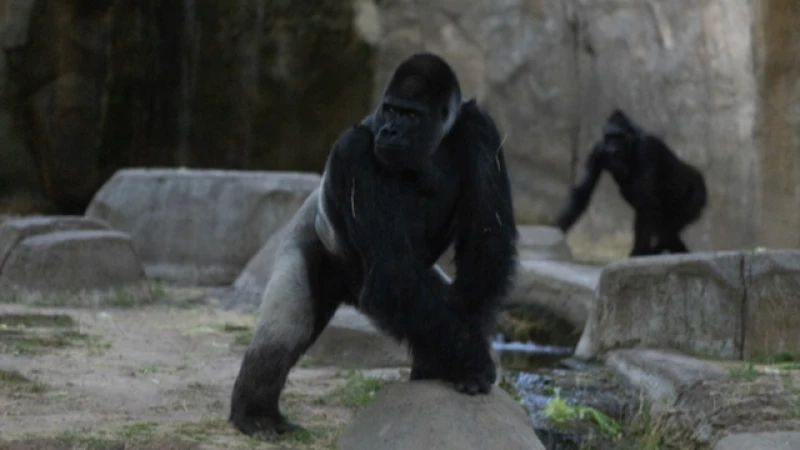Scientists and zookeepers watched Monday as giraffes, gorillas, lions, macaws and flamingoes exhibited unusual behavior during the total solar eclipse.
Because total eclipses happen so infrequently, researchers don't know much about how they impact animals. They studied animals on Monday at several zoos situated along the eclipse path of totality, such as the Fort Worth Zoo in Texas. Animals were largely calm at the Fort Worth Zoo, though some, including the gorillas, lions and lemurs, showed increased signs of vigilance and curiosity.
"Most importantly, we did not observe any signs of increased anxiety or nervous behaviors," a Fort Worth Zoo spokesperson said. "And by the time totality had passed, things went back to normal, almost immediately!"
Several animals at the Fort Worth Zoo made their way toward their barn doors, which is where they go at night, as the skies darkened during the eclipse, the zoo spokesperson said. The Aldabra tortoises, giraffes, elephants, kudu, bonobos, coatis and gorillas all headed toward their barns.
Zoos were also able to observe some unique daytime behavior from nocturnal animals. At the Fort Worth Zoo, a ringtail cat and two owl species showed increased activity during the day.
During the eclipse in Texas, the Dallas Zoo witnessed giraffes and zebras running around. Chimpanzees were seen patrolling the outer edge of their habitat, while most of a group of bachelor gorillas gathered near the door they usually use to enter at night.
An ostrich at the Dallas Zoo even laid an egg as the eclipse took place. Other birds at the zoo became louder before the totality and then fell silent. Flamingos and penguins were seen huddling together.
Meanwhile, at the Indianapolis Zoo, birds exhibited peculiar behavior according to a zoo spokesperson. Macaws, budgies, and other birds became quiet and perched up high, mimicking their nighttime behavior.
"You can hear they're totally silent now - not a peep, and no movement," said Indianapolis Zoo President and CEO Dr. Robert Shumake in a video recorded during totality.
Flamingos at the zoo huddled together and also became quiet. Cheetahs and a warthog displayed behaviors typically seen in the evening. The cheetahs paced at the highest point of their grassy yard during the eclipse, while a warthog waited near its back gate.
Even at the Philadelphia Zoo, which did not experience totality, visitors were able to observe the animals during the partial eclipse.
During the 2017 solar eclipse, researchers delved into the behavior of zoo animals. A study released in 2020 detailed their observations of 17 species - including mammals, birds, and reptiles - at the Riverbanks Zoo in Columbia, South Carolina. They found that approximately 75% of the species exhibited some form of change in response to the eclipse. Interestingly, many of the animals displayed behaviors typically associated with the evening or nighttime, with a few showing signs of anxiety.
Unfortunately, zookeepers and researchers in the U.S. will have to wait until 2044 for another opportunity to conduct such research during a total eclipse. The next total eclipse in the contiguous U.S. is set to occur on August 23, 2044, with only three states falling within the path of totality, as per The Planetary Society.







